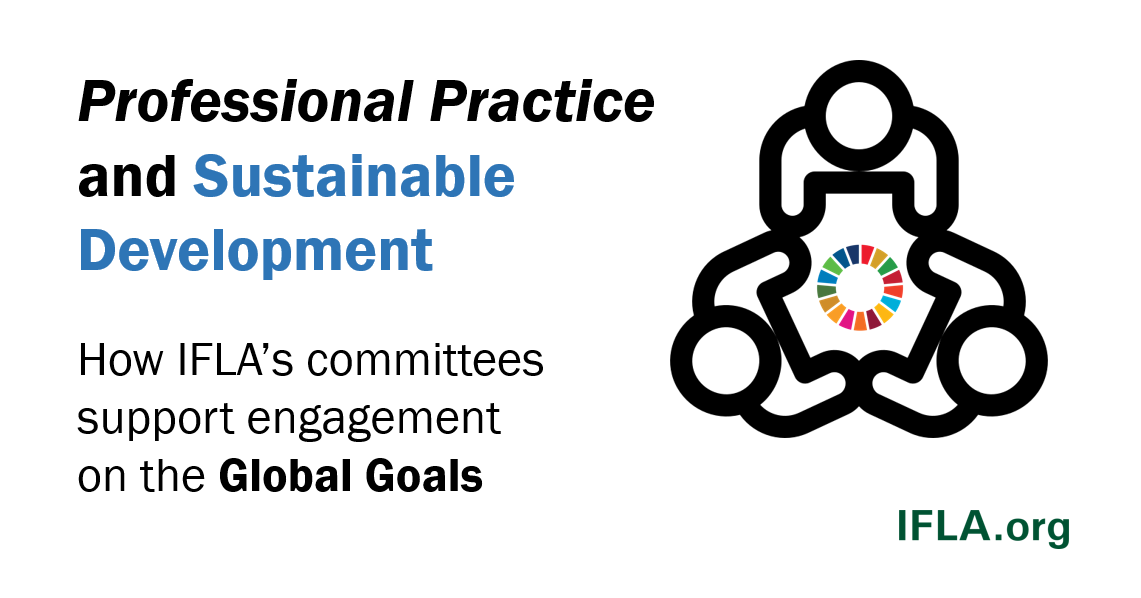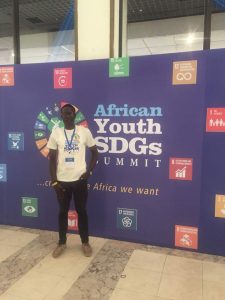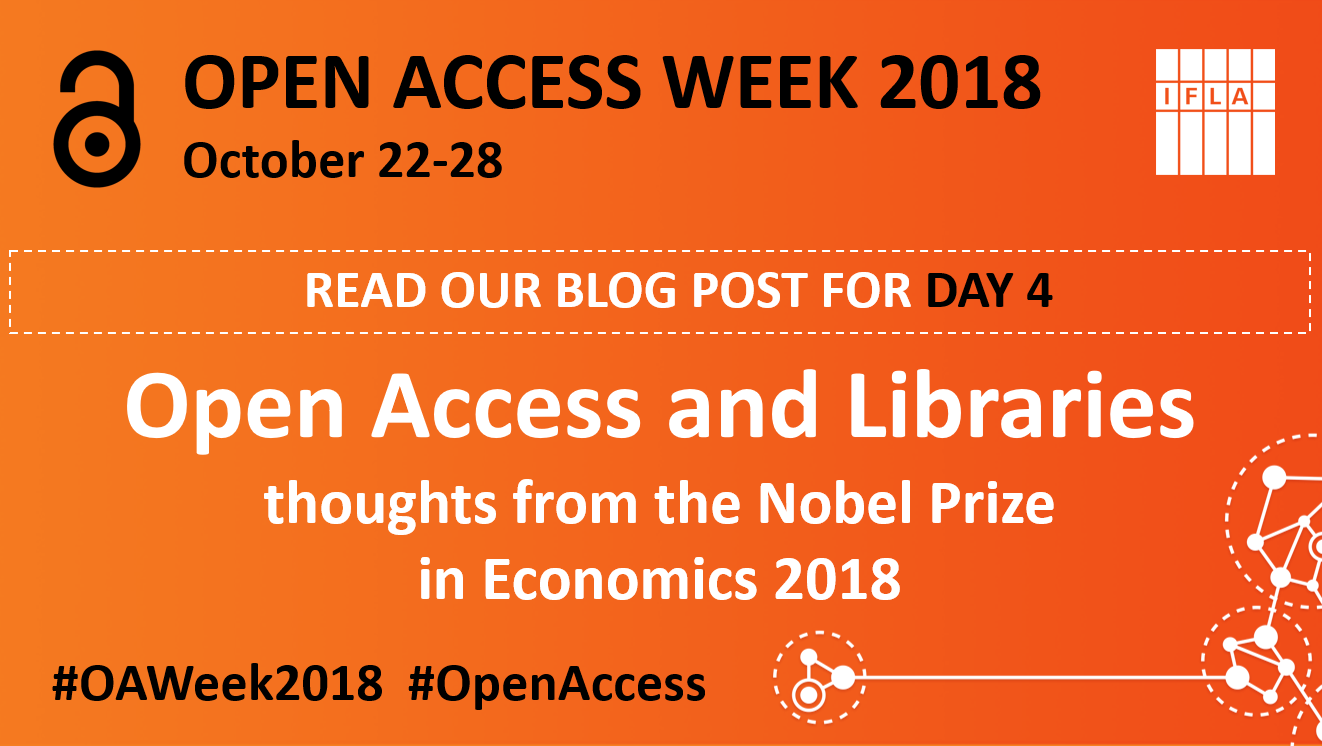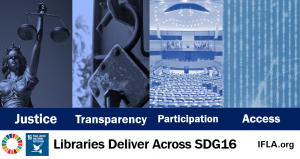
Starting today and continuing to Wednesday, governments, UN agencies and non-governmental organisations involved in delivering SDG16 are meeting in Rome.
In advance of the focus on this Goal in New York at the High Level Political Forum, this is an opportunity to take stock, to explore where progress is needed, and to see what solutions exist. The results will inform discussions among ministers.
IFLA is here, with the recently released Development and Access to Information report, underlining the need to focus on access to information, and the help that libraries provide in achieving this goal.
The Good Governance Goal
SDG16 itself is as complex as it is fundamental. It is a foundational goal which enables efforts – and success – in all others. It includes everything from reducing violence – by states and individuals – to promoting democracy and fundamental freedoms, including access to information.
It is also controversial, with it unsure until late in the process whether it would be included at all. Many states, it is true, did not want the way they managed themselves and their policies to be in the spotlight.
Four particular targets under SDG16 are relevant to libraries. This blog sets out why, and what libraries are doing to achieve them:
Access to Justice
SDG 16.3: Promote the rule of law at the national and international levels and ensure equal access to justice for all
Too often, laws that are meant to protect people and their rights do not work because it is only some members of society who can enforce them. Bureaucratic and cultural barriers, as well as cost are major issues.
A further key concern is information about justice. Laws are often long and complicated, and even the best educated are unlikely to have read or understood them. Those who are most at risk of discrimination or disadvantage are particularly vulnerable.
As such, access to legal information is a key means of ensuring that more people can enjoy the rights they have. Libraries – especially through partnerships between law libraries and public libraries – can make a major contribution to ensuring that ordinary people can learn about their rights.
A great example comes from New South Wales, Australia, where for over 25 years, public libraries have been working with the Legal Information Access Centre at the State Library. Through direct consultation, and easy-read materials, this has made access to justice a reality for many who would otherwise have been left out.
Accountability and Transparency
SDG 16.6: Develop effective, accountable and transparent institutions at all levels
Governments have a duty to their citizens to make best use of their potential to improve lives. Yet too often, there are failures or worse, with public money mis-spent, or powers misused.
These problems can be reduced (or alternative governments chosen) when there is transparency about how governments and institutions are working. Without this, citizens have nowhere to start in terms of holding those in power to account.
There is a move towards publishing ‘open government’ information, around decision-making, budgeting and spending. New platforms are being designed and put online, and citizens given the possibility to use them to come to their own conclusions.
However, simply creating the possibility is not enough. Those without internet access or technology are immediately excluded, as are those who do not know about the possibilities, and those who lack the skills and confidence to use them.
Libraries can play a key role in overcoming this situation, letting people know about what is possible, and helping them to make use of the new rights. An example from Kenya, where many people still cannot get online through a laptop of desktop, underlines what can be done.
Better Decision-Making
SDG 16.7: Ensure responsive, inclusive, participatory and representative decision-making at all levels
As highlighted above, governments have an important responsibility to their people to take the right decisions, not least concerning public money.
These decisions are significant, often affecting millions of people, and millions of dollars. It is broadly accepted that the best decisions are based upon wide consultation and use of evidence.
Yet as policies become more interconnected and complicated, it is not necessarily easy to achieve this, either for the governments drafting laws, or the parliaments debating them.
Libraries have a key role to play here, providing access to information for decision-makers. They bring a unique ability to collect and make available information in a form and at a time that really supports the work of governments and parliaments.
The work of IFLA’s sections on Government Libraries and Parliamentary Libraries offer many examples of what libraries can achieve in supporting responsive, inclusive, participatory and representative decision-making.
Access to Information
SDG 16.10: Ensure public access to information and protect fundamental freedoms, in accordance with national legislation and international agreements
SDG 16.10 has been at the heart of IFLA’s work around the Sustainable Development Goals. Complementing the targets highlighted above that focus on access to information about government, it stresses the need for access to information in general.
Just as this goal has long been at the heart of IFLA’s SDG engagement, the mission it refers to is central to the mission of libraries in general.
Through providing information in whatever form or from whatever source is relevant, libraries help people to seize opportunities and take better decisions. This access is therefore a key part of a development framework focused on empowering individuals to make their own choices.
Despite predictions of the demise of libraries in a digital age, their role has arguably been strengthened, as the importance of skills, physical spaces, and a welcoming environment have become clearer.
The Development and Access to Information Report, of which the second edition was launched last week, offers many examples, across the SDGs, of how this access makes a difference.
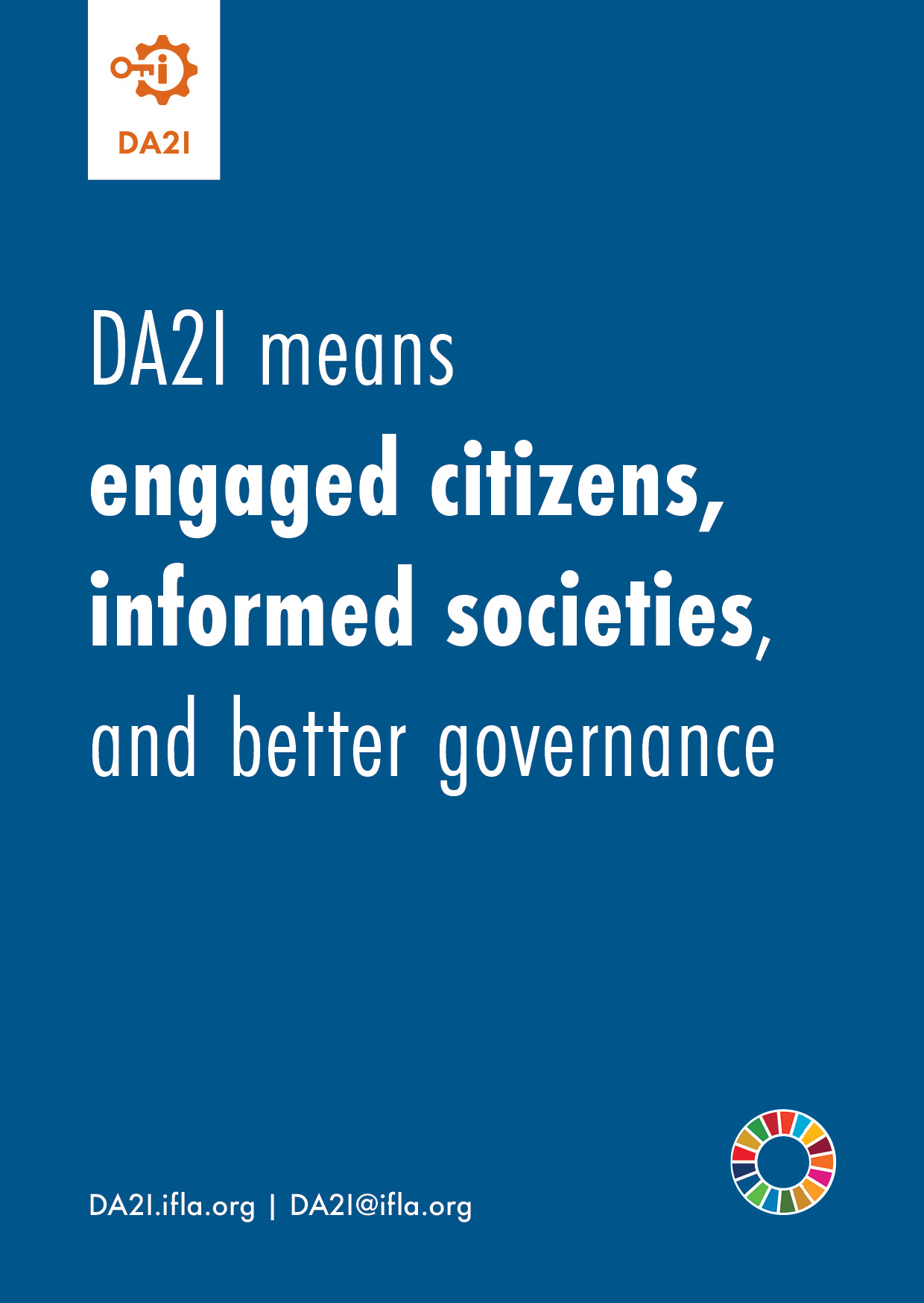 The fifth Sustainable Development Goal under review at the 2019 High Level Political Forum is SDG 16 – peace, justice and strong institutions.
The fifth Sustainable Development Goal under review at the 2019 High Level Political Forum is SDG 16 – peace, justice and strong institutions.